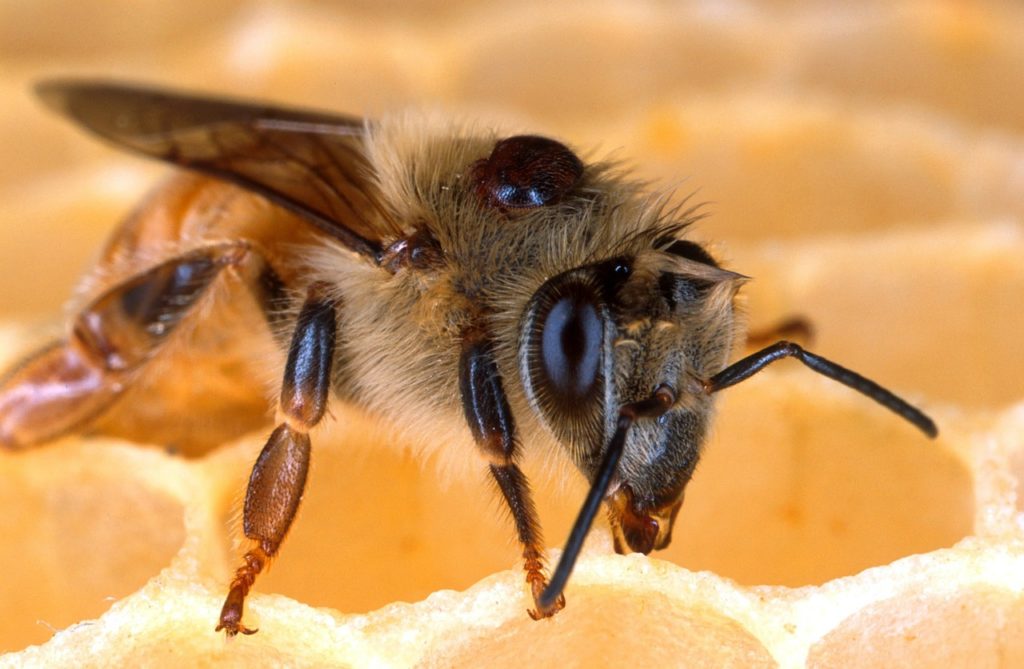
Fighting Varroa with microbes isn’t a new concept. Fungal extracts have been tested for their anti-viral properties. The creators of the first probiotic supplement for bees, Strong Microbials Inc., have also been experimenting over the past few years with bacterial bio-control products to reduce in-hive Varroa mite populations. New research is emerging that honeybees may already be equipped with the bacteria to fight back against Varroa. Microbial evolutionary biologist, Jeffrey Barrick, and his colleagues at the University of Texas, Austin have been trying to manipulate honey bee gut bacteria into natural Varroa killers. Their research was recently published in Science magazine, Engineered symbionts activate honey bee immunity and limit pathogens.
The honeybee gut microbiome is made up of a small core set of bacteria. One of the bacteria found in the honey bee gut has shown promise as an anti-viral and anti-Varroa. Graduate student Sean Leonard has been genetically modifying Snodgrassella alvi. to continually produce RNA which matches the genetic material they are aiming to dismantle in Varroa. The Varroa destructing bacterium was fed and maintained in the gut of 20 adult bees over a 15 day period. It is the researchers hope that adult bees would be able to successfully transfer the new bacterium to young bees.
Results demonstrated that Varroa feeding on treated bees were 70% more likely to die than compared to the control. The experimental virus-targeting RNA also improved bee survival by 36%.
In addition to this work, genetic engineering may also help make bees become more resilient to pesticides. This work does not come without concern. Just as we are concerned with genetically modified foods and organisms, the same goes for honey bees. Researchers are unsure of what implications may result when this technology is released in nature. Is the technology worth the risk if it successfully addresses the Varroa problem? What do you think?
